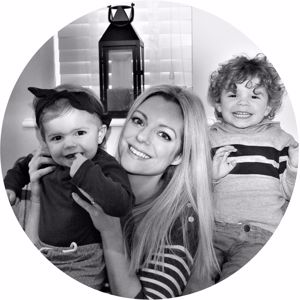When I was going through my own birth trauma and wondering whether my experience was ‘enough’ to warrant how bad I was feeling, I came across this definition which completely validated everything:
“Trauma takes place at the intersection of fear and helplessness.”
You see, it doesn't matter how severe your experience is, or isn’t, compared to someone else’s trauma. There will always be something ‘worse’, and the toxic positivity of the ‘it could be worse’ brigade can actually make trauma more intense. All that matters is that in a moment of helplessness, where you had no control over the situation, you felt a very real and intense fear which continues to stick with you.
My own helplessness was linked to a significant lack of care, and compassion, from the midwife whose care I was under during my labour. This, coupled with a very real fear around the safety of myself and my baby, led to an undiagnosed case of PTSD which wasn’t treated or resolved until I became pregnant with my next child when the symptoms became worse again.
What Are the Signs and Symptoms of Birth Trauma?
Perhaps you are here reading this and wondering about yourself, or perhaps you are worried about a spouse, friend or relative? Here are some of the things to look out for if you suspect birth trauma may be affecting a loved one:
- Post-traumatic stress disorder (PTSD) symptoms such as:
- flashbacks
- intrusive thoughts
- nightmares
- anxiety - Depression or postnatal depression
- Feelings of guilt, shame, or self-blame
- Anger, irritability, or mood swings
- Difficulty bonding with the baby
- Hypervigilance or constant worry about the baby's well-being
- Avoidance of reminders of the traumatic birth
- Loss of interest or pleasure in previously enjoyed activities
- Sleep disturbances or insomnia
- Strained relationship with the baby or difficulty forming an emotional bond
- Strained relationship with the partner or other family members
- Feelings of isolation or detachment from others
- Decreased libido or loss of interest in intimacy
- Difficulties with communication or expressing emotions
It's important to note that each individual's experience may vary, and not all mothers will exhibit the same signs and symptoms.
I found that I was unable to sleep as every time I closed my eyes, I was back in the hospital in my mind. I had intrusive, catastrophic thoughts of bad things happening to my baby, either accidentally or caused by myself, which left me horrified and made me question whether I was safe to be around. The flashbacks lasted for over a year and came back with a vengeance once I was pregnant again. I hid away and didn’t want to see anyone for weeks afterwards. It was an incredibly long and difficult recovery.
Treating Birth Trauma
If a mother suspects she is experiencing birth trauma, it is crucial to seek support from healthcare professionals, such as your GP, Health Visitors, Midwives, therapists, or support groups specialising in postpartum mental health, such as PANDAS.
Tips for Recovering After Birth Trauma
There are a few things which I did which helped:
- I had a debrief with the head of midwifery at the hospital – this meeting went through my birth notes, gave me the opportunity to discuss and hear exactly what happened and receive some validation for my feelings toward the events. I found out at this meeting that my midwife on the day had received other complaints and had been let go. This in itself made me feel better as I was so worried about seeing her again for my next birth. It also helped the team to plan my next birth, which at the time was imminent, meaning I avoided all rooms from my previous experience and had a midwife duo with me throughout the entire labour and wasn’t left alone.
- I had CBT therapy – my therapy wasn’t trauma-specific, but it was focused on postnatal recovery. Certain types of trauma therapy can be quite harrowing, and so it can be a difficult process to go through with a new baby, it's best to discuss your options with a professional and decide when may be the right time for more intense trauma-specific therapy depending on your own case.
- I joined my local PANDAS group where I met other parents struggling with similar postnatal mental health issues every fortnight, which was a safe space to talk openly and share experiences with others without worry of judgement.
- I started journaling, using this as a creative outlet alongside my blog to focus on small achievements as well as sharing my thoughts and feelings.
- I forced myself into a routine with my baby, booking classes which I’d paid for in advance so that I couldn’t just ‘miss’ when my anxiety was bad or tried to stop me from leaving the house. I started to go out for daily walks and tried to meet up with a friend at least once a week.
Of all of the above, the debrief at the hospital made the biggest difference. Some hospitals offer to let you see your notes rather than a debrief – and although it can be hard initially, it really does help to fill in the blanks and piece your thoughts and memories together. I would always urge anyone to do this – as there is usually a time limit on when you can ask to see your notes by, so even if you just photocopy them to read at a later date, it should hopefully help.





